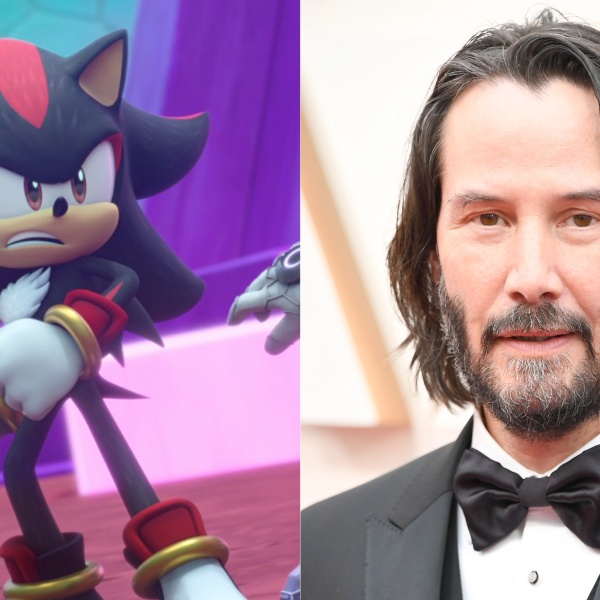The five most famous words ever said at Walt Disney World in Florida? “Well, I’m not a crook.”
Yep, Richard Nixon’s infamously defensive November 17, 1973 press conference denying the Watergate scandal took place not at the White House but at the Happiest Place on Earth. Such was the president’s Disney fandom — an obsession with Mickey & Co. that many American conservatives shared for decades. Florida governor Ron DeSantis even got married at Disney World.
How times have changed.
Disney is now Public Enemy No. 1 for DeSantis. The governor commandeered the longstanding special administrative zone (the Reedy Creek Improvement District) that allows Walt Disney World to self-govern by appointing his own board of directors to lead it; Disney countered with some “Game of Thrones”-style legal jujitsu to prevent that new board from changing anything. DeSantis then threatened more legislative combativeness, and finally Disney filed a lawsuit with the U.S. Court for the Northern District of Florida alleging retaliation by the governor and illegal voiding of contracts, asking for a return to the status quo. Then DeSantis’s handpicked board he’d installed to take over Reedy Creek filed a countersuit in state court.
So can Disney win over DeSantis?
IndieWire spoke to three experts: Jacob Schumer, a land-use attorney specializing in local government affairs based in the Orlando suburbs; political science professor Aubrey Jewett, who is an assistant director at the School of Politics, Security, and International Affairs at the University of Central Florida; and First Amendment scholar and law professor RonNell Andersen Jones at the University of Utah. They broke down the winnability of Disney’s lawsuit against the Florida governor, piece by piece, starting at the beginning.

Why does Disney have its own government?
Disney advocated for the creation of the Reedy Creek Improvement District to be created in 1967 so that the company could set its own building codes and standards, and could tax itself to enable the development of its 25,000 acres (39 sq. miles) of land it had purchased for the “Florida Project.” Instead of paying taxes to the state government, and the state building roads and infrastructure, Disney could distribute the tax money it acquired from itself for its developments.
And that’s what happened. The tax revenue didn’t go to the state itself (although Disney also pays taxes to the Orange and Osceola counties over which its property stretches — essentially, being double taxed), but the company developed its land to higher standards than the state government could have achieved.
Schumer: Reedy Creek’s taxing power is three times higher than cities and counties. It has humongous taxing power. No other special district comes anywhere close to it. And that taxing power was used to build very nice roads and very nice facilities that otherwise a government wouldn’t spend the extra money on.
Plenty of people would say it’s an unfair advantage, but other people would say — look, it worked extremely well. So an unfair advantage it may be, [but] maybe you should give it to other companies. Maybe you should let Universal Studios do this as well.
Jewett: Reedy Creek is/was different than any other special district in Florida in terms of the broad variety of power they were given. Now most of the powers that they were given can be found in other Florida special districts (flood control, water, utilities, fire protection, waste disposal, roads, etc), but not usually combined — and some that I don’t think exist anywhere else in Florida.
Walt Disney World was conservatives’ dream come true: The ultimate example of trickle-down economics
Reedy Creek being able to assume functions of government to provide basic infrastructure and spur economic development resulted in an economic engine for Orlando and Central Florida, directly creating 75,000 jobs on the property itself. It’s also maintained high standards.
Jewett: I think two things are often missed by critics of Reedy Creek. First, state and local governments often give businesses huge incentives to move to their area or expand in their area. Think about the massive breaks given car manufacturers or high tech businesses (FL has given huge breaks to numerous bio tech firms). So in comparison to those kinds of deals, the Disney Reedy Creek deal does not look so out of the ordinary.
When Disney came to Florida in the 1960s enormous amounts of money were going to have to be spent to develop the land. That money could either come from taxpayers or from Disney; setting up Reedy Creek allowed that money to come from Disney through the bonds they issued and repaid. Disney has more than held up its end of the deal: putting Orlando and Florida on the map, attracting millions of visitors, paying billions in taxes, creating tens of thousands of jobs directly and tens of thousands more indirectly. And [it] created billions of dollars of economic activity both directly from their operations and many more billions indirectly for all the hotels, restaurants, and retails outlets who benefit from spending by people coming to visit Disney.

Second, while Reedy Creed is qualitatively different than other Florida special districts (there are about 1,950 of them currently), it is not completely unique. In fact, the fastest growing type of special district in FL (and most numerous, with more than 900 of them) is the Community Development District. And these CDDs are quite similar in broad framework to Reedy Creek. So bottom line, Florida does allow lots of “private” governments in Florida designed to create and operate new developments and they are run by property owners — this in essence is what Reedy Creek does, or did.
Schumer: You hear a private company gets to write their own codes [and think] they’re going to be super lax. Actually, Disney made their codes really strict. It’s harder to get permits in the district than it is in Orange or Osceola County. It’s because Disney is an organization that’s so concerned about its perception and quality… they built very good parks, they build high-quality roads, and they build a high-quality monorail. People tend to be much safer there than in ordinary places.
Conservatives advocated for corporate free speech — until Disney took a stand on LGBTQ rights
Disney drew DeSantis’s ire by withdrawing all political spending in Florida after Florida Republicans introduced the “Don’t Say Gay” bill in early 2022 the company then came out in opposition to the bill itself. Disney’s lawsuit against DeSantis alleges retaliation spurred by Disney’s opposition to the state’s anti-LGBTQ policies.
Andersen Jones: This case is an assertion of freedom of corporate speech. It was not always universally recognized that corporations had First Amendment rights that paralleled those of individual people. This doctrine came about primarily as a result of a concerted conservative push for it, and it was conservative justices who expanded the ability of corporations to argue that they enjoy freedom of speech. This is a bit of a plot twist, with the corporate free speech being asserted in a suit that is contrary to, rather than advancing, that conservative agenda.
Jewett: According to the United States Supreme Court, corporations have free speech rights and conservatives have usually agreed with this interpretation and pushed for it — this was the crux of the 2010 Citizens United decisions allowing corporations to spend money on independent expenditure campaigns (basically, the court linked money and speech, which was controversial, but the underlying premise was less controversial — that corporations have free speech rights).
Free speech does not go away just because the state (or federal or local) government does not like the speech — in fact, the courts have held numerous times that objectional speech is when free speech rights are most important. One example that I use to “balance the scales” between liberals and conservatives is the case of Chik-fil-A where several progressive local governments have taken action over the years to try and stop new locations from opening because they think Chik-fil-A has not been supportive of (or directly opposed to) LGBTQ rights like gay marriage. As a political science professor who highly values free speech, I tell my students it is not right for governments to try and punish companies for exercising their free speech rights, regardless of whether it is conservative or liberal.
Has DeSantis dissolved Reedy Creek?
Schumer: No. The reason why they couldn’t dissolve the district like they originally planned is that they had outstanding bonds [Disney had long ago paid to Florida] and the state government can’t dissolve a district without paying those off. And so they didn’t want to pay billions of dollars of Disney’s debt immediately.
Instead, DeSantis appointed his own board members to run Reedy Creek. Which is not the same as putting Disney on an equal footing with other companies and theme parks.
It went from being unequal in one way [in favor to Disney] to unequal in the other way. Because the equal footing with other theme parks would be no district at all. Not political appointees in control of the district.

Jewett: In between attacking Disney for speaking out against the “Don’t Say Gay” bill, DeSantis has also occasionally said that it is about leveling the playing field and treating Disney equally. But that is not what the state has done. No other company in Florida that I know has a local government board selected by the governor where the board and governor have threatened the company and set up a system where they have leverage to damage that company. DeSantis and some members of the board have directly and indirectly indicated that they want Disney to change its behavior (for instance, to stop speaking out on “woke” issues and to curtail diversity within its programming and movies) and that they might or will use their power over taxing, spending, services and future development to punish Disney if Disney does not comply.
As one specific example, DeSantis has said the state will take away the power of Disney to conduct their own pool and ride inspections, but leave those powers with competitors like Sea World and Universal. Overall, Disney is not being treated equally; it is being treated much worse. That is the heart of the 14th Amendment complaints alleged by Disney — that the state and board are not giving Disney equal protection and due process under the law.
An aside here to address an extremely dumb, if often asked, question: Can Disney leave Florida?
No, Disney can’t move out of Florida, and anyone wondering that has clearly never set foot in Walt Disney World. The property has four sprawling theme parks, two water parks, an entertainment district, and 31 themed resort hotels. It’d be like asking the Las Vegas Strip to pack up and move elsewhere. Walt Disney World is the most visited vacation destination in the world, with an average attendance of 58 million visitors a year — part of why the Parks unit is the biggest revenue stream for the Walt Disney Co.
What judge would hear Disney’s case against DeSantis?
Jewett: At this moment, we do not know which judge will hear the case, [though chief judge Mark Walker oversees the district]. I think it does matter somewhat who hears the case, although it shouldn’t and might not since both liberal and conservative judges have frequently been supportive of free speech rights.
[This weekend, a judge from the U.S. Court for the Northern District of Florida, Martin Fitzpatrick, declared that he recused himself for consideration — but he hadn’t been assigned to the case.]
Jewett: Regardless of what the trial court decides, whoever loses will likely appeal and the federal appeals court for Florida has more conservatives than liberals. Whoever loses at federal appeals level may appeal to the US Supreme Court, where there are also more conservative appointees than liberals.
Schumer: [Fitzpatrick’s recusal] caused confusion because ordinary people really don’t need to concern themselves with knowing about stuff like this. The case still ultimately falls under chief judge Mark Walker. If he chooses to hear it himself, he is exactly the Judge Disney would want on this. Judge Walker has not been concerned, has not been hesitant, to issue scathing rulings against the DeSantis administration for free-speech violations. [Walker struck down DeSantis’s “Stop Woke” Act in November.]
Is there evidence to support Disney’s case that DeSantis is retaliating against the company?
Schumer: The case that it was DeSantis’s retaliation in response to protected speech is rock solid. There’s no way that the state can get around that part because of all the public statements DeSantis and legislators have made [including what Republican state representative Randy Fine said when he introduced the bill to dissolve the special district: “This bill does target one company: it targets the Walt Disney Company”] and the timing, and a million other things. The governor and the legislature put in bright lights, they lit it up in a billboard, saying this is retaliation and retaliation specifically for protected speech, which is prohibited under the First Amendment.
Then it’s a matter of what the courts feel that they can do about it. If they think that they can go back and say, yeah, the whole takeover is illegal, and put Disney’s people back in on the board [removing DeSantis’s appointments], I think that’s the most likely outcome. What can DeSantis’s board members do in the meantime, though?
Andersen Jones: First Amendment doctrine makes clear that it is unconstitutional when government retaliates for speech or expressive positions. Disney’s claim is that DeSantis was not subtle — that he almost directly said that he was taking his actions to punish the company for its expressive positions. If Disney can prove that, it isn’t perfectly relevant that the position it lost was a privileged one that others didn’t have. The question is whether government’s actions — of whatever sort — were punishment for expression.
Could there be a compromise?
Schumer: One compromise that might make everybody happy and might actually be consistent with equality is replacing the governor-appointed board with Orange and Osceola County appointees. Then you get something more like equality because it’s local control as opposed to political-appointee control. But settlement seems far away at this point because settlement means the governor worked with Disney. But if there is one, that’s my guess at what a settlement would look like.
What about the DeSantis-selected board members filing a countersuit against Disney in state court?
Jewett: Ultimately the federal court battle will be more important. If Disney wins what they want in federal court, then the state court battle will become largely moot (because the law getting rid of Reedy Creek will be voided and this new board will be gone). However, if Disney loses in federal court then the state court battle takes on added significance because then the state court decision will determine whether the development agreement is valid (and Disney still gets to have a lot of control) or whether it is invalid and the new board will have Disney under its control.
Bottom line: Can Disney win against DeSantis?
Schumer: I think they have a very good chance of winning the retaliation aspect of the suit. They also just want a return to the status quo. I don’t think they’re looking for damages and I don’t think they want them.
Jewett: Yes, Disney has a chance of winning. Like any court battle there is no guarantee, but the lawsuit brings up serious constitutional questions and provides the outline of the evidence for the charges that seem pretty clear and factual on the surface. Despite what Governor DeSantis has said, the lawsuit is not just political.
Andersen Jones: Yes, Disney has a quite robust claim here.





